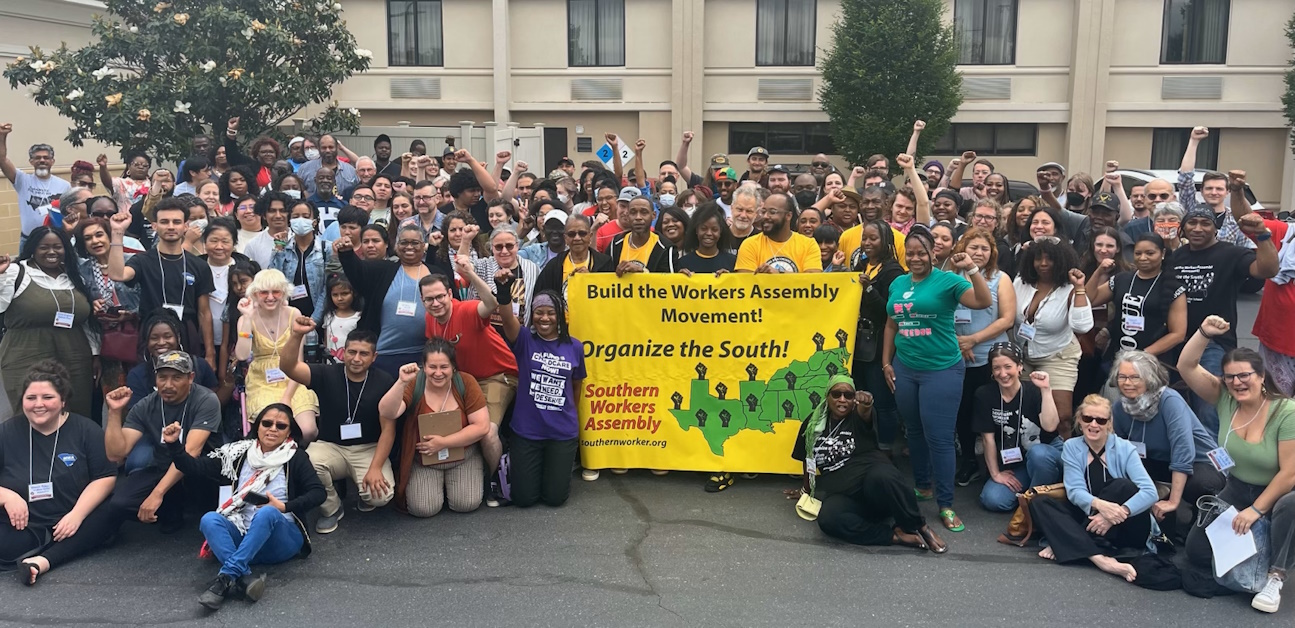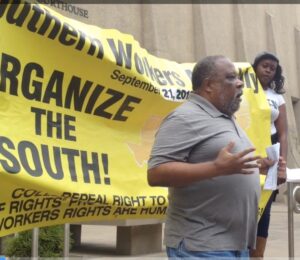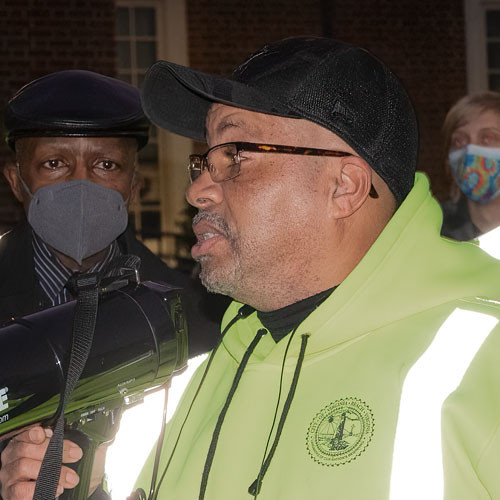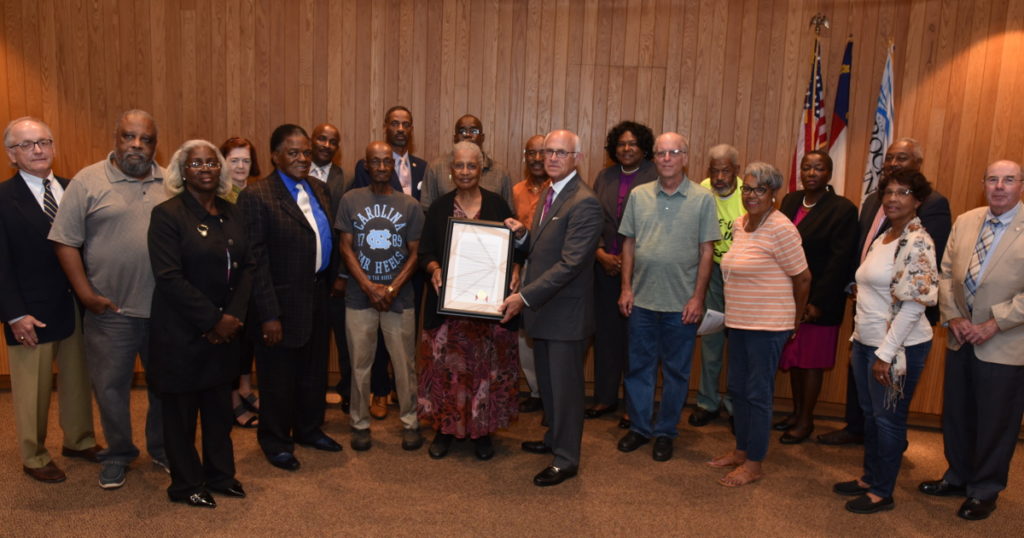The recent national wave of workers resistance, sickouts and strikes across the U.S., the largest in many decades, shows that today’s workers’ demands and concerns must be heard and addressed! Objectively, the demands are real, reasonable, and necessary for everyone because they impact the quality of all our family lives and community. We are all workers! Hence, in North Carolina and many southern states, the call to repeal and abolish “Right to Work” laws that deny worker protections and public sector collective bargaining rights, has come front and center again.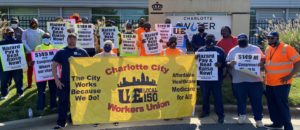
The recent wave of militant actions by bus drivers, cafeteria, school workers and city workers in Elizabeth City, Greensboro, Charlotte, Forsyth, Pitt, Durham, and Wake Counties, as well as State workers, show that public workers cannot serve us – the residents and voting citizens of the 10th largest state in the US – when they are understaffed, underpaid and disempowered by NC state laws like General Statute section 95-98. This law bans public service workers from exercising the nationally recognized human right to collectively bargain. It was legislated to keep Black housekeepers, cafeteria workers and ground keepers on the State university campuses from union organizing and collective bargaining.
In 2006, the United Nations’ International Labor Organization found that NC’s ban on collective bargaining was in violation of the UN Charter on Human Rights. Our delegation with representatives from Black Workers for Justice, NC Public Service Workers Union – U.E. Local 150, and others walked into Governor Mike Easely’s office to deliver a copy of the ILO formal decision. His top administrative team responded with an Executive Order and series of “meet and confer” sessions that fell short of a needed political initiative to repeal the Jim Crow era statute’s ban on collective bargaining.
Public service workers provide clean and safe water and sewer services, schools, food and buses for our children, and sanitation services for our communities. Public workers staff our mental health hospitals, repair our roads and build our bridges. Public workers make North Carolina a great place to live, play and work!
We must challenge the present Governor Cooper’s administration, and educate others, while pushing the state to take action to bring collective bargaining to the public sector. If Virginia can, so can we!
Angaza Sababu Laughinghouse
NC Public Service Workers Union-UE local 150/ Executive Board
Raleigh Area Workers Asembly/Co-Chair ( affliliated with Southern Workers Assembly)
